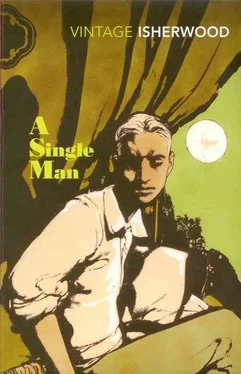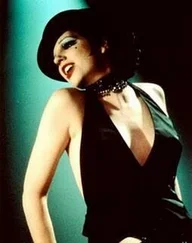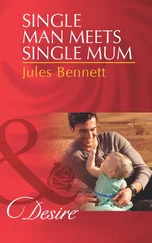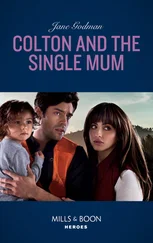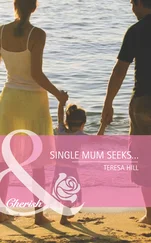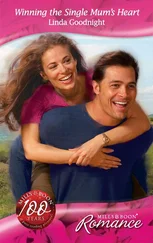Just suppose that the dead do revisit the living. That something approximately to be described as Jim can return to see how George is making out. Would this be at all satisfactory? Would it even be worth while? At best, surely, it would be like the brief visit of an observer from another country, who is permitted to peep in for a moment from the vast outdoors of his freedom and see, at a distance, through glass, this figure who sits solitary at the small table in the narrow room, eating his poached eggs humbly and dully, a prisoner for life?
The living-room is dark and low-ceilinged, with bookshelves all along the wall opposite the windows. These books have not made George nobler or better or more truly wise. It is just that he likes listening to their voices, the one or the other, according to his mood. He misuses them quite ruthlessly – despite the respectful way he has to talk about them in public – to put him to sleep, to take his mind off the hands of the clock, to relax the nagging of his pyloric spasm, to gossip him out of his melancholy, to trigger the conditioned reflexes of his colon.
He takes one of them down now, and Ruskin says to him:
. . . you liked pop-guns when you were schoolboys, and rifles and Armstrongs are only the same things better made: but then the worst of it is, that what was play to you when boys, was not play to the sparrows; and what is play to you now, is not play to the small birds of State neither; and for the black eagles, you are somewhat shy of taking shots at them, if I mistake not.
Intolerable old Ruskin, always absolutely in the right, and crazy, and so cross, with his whiskers, scolding the English – he is today’s perfect companion for five minutes on the toilet. George feels a bowel movement coming on with agreeable urgency, and climbs the stairs briskly to the bathroom, book in hand.
Sitting on the john, he can look out of the window. (They can see his head and shoulders from across the street, but not what he is doing.) It is a grey lukewarm California winter morning; the sky is low and soft with Pacific fog. Down at the shore, ocean and sky will be one soft sad grey. The palms stand unstirred and the oleander bushes drip moisture from their leaves.
This street is called Camphor Tree Lane. Maybe camphor trees grew here once; there are none now. More probably the name was chosen for its picturesqueness by the pioneer escapists from dingy downtown Los Angeles and stuffy-snobbish Pasadena who came out here and founded this colony back in the early twenties. They referred to their stucco bungalows and clapboard shacks as cottages; giving them cute names like The Fo’c’sle and Hi Nuff . They called their streets lanes, ways or trails, to go with the woodsy atmosphere they wanted to create. Their Utopian dream was of a subtropical English village with Montmartre manners; a Little Good Place where you could paint a bit, write a bit, and drink lots. They saw themselves as rearguard individualists, making a last-ditch stand against the twentieth century. They gave thanks loudly from morn till eve that they had escaped the soul-destroying commercialism of the city. They were tacky and cheerful and defiantly bohemian; tirelessly inquisitive about each other’s doings, and boundlessly tolerant. When they fought, at least it was with fists and bottles and furniture, not lawyers. Most of them were lucky enough to have died off before the Great Change.
The Change began in the late forties, when the world-war-two vets came swarming out of the East with their just-married wives, in search of new and better breeding-grounds in the sunny Southland, which had been their last nostalgic glimpse of Home before they shipped out to the Pacific. And what better breeding-ground than a hillside neighbourhood like this one, only five minutes’ walk from the beach and with no through traffic to decimate the future tots? So, one by one, the cottages which used to reek of bathtub gin and reverberate with the poetry of Hart Crane have fallen to the occupying army of coke-drinking television-watchers.
The vets themselves, no doubt, would have adjusted pretty well to the original bohemian Utopia; maybe some of them would even have taken to painting or writing between hangovers. But their wives explained to them, right from the start and in the very clearest language, that breeding and bohemianism do not mix. For breeding you need a steady job, you need a mortgage, you need credit, you need insurance. And don’t you dare die, either, until the family’s future is provided for.
So the tots appeared, litter after litter after litter. And the small old schoolhouse became a group of big new airy buildings. And the shabby market on the ocean front was enlarged into a super-. And on Camphor Tree Lane two signs were posted. One of them told you not to eat the watercress which grew along the bed of the creek, because the water was polluted. (The original colonists had been eating it for years; and George and Jim tried some and it tasted delicious and nothing happened.) The other sign – those sinister black silhouettes on a yellow ground – said CHILDREN AT PLAY.
George and Jim saw the yellow sign, of course, the first time they came down here, househunting. But they ignored it, for they had already fallen in love with the house. They loved it because you could only get to it by the bridge across the creek; the surrounding trees and the steep bushy cliff behind shut it in like a house in a forest clearing. ‘As good as being on our own island,’ George said. They waded ankle-deep in dead leaves from the sycamore (a chronic nuisance); determined, now, to like everything. Peering into the low damp dark living-room, they agreed how cosy it would be at night with a fire. The garage was covered with a vast humped growth of ivy, half dead, half alive, which made it twice as big as itself; inside it was tiny, having been built in the days of the model T Ford. Jim thought it would be useful for keeping some of the animals in. Their cars were both too big for it, anyway; but they could be parked on the bridge. The bridge was beginning to sag a little, they noticed. ‘Oh, well, I expect it’ll last our time,’ said Jim.
No doubt the neighbourhood children see the house very much as George and Jim saw it, that first afternoon. Shaggy with ivy and dark and secret-looking, it is just the lair you’d choose for a mean old story-book monster. This is the role George has found himself playing, with increasing violence, since he started to live alone. It releases a part of his nature which he hated to let Jim see. What would Jim say if he could see George waving his arms and roaring like a madman from the window, as Mrs Strunk’s Benny and Mrs Garfein’s Joe dash back and forth across the bridge on a dare? (Jim always got along with them so easily. He would let them pet the skunks and the raccoon and talk to the mynah bird; and yet they never crossed the bridge without being invited.)
Mrs Strunk, who lives opposite, dutifully scolds her children from time to time, telling them to leave him alone, explaining that he’s a professor and has to work so hard. But Mrs Strunk, sweet-natured though she is – grown wearily gentle from toiling around the house at her chores; gently melancholy from regretting her singing days on radio, all given up in order to bear Mr Strunk five boys and two girls – even she can’t refrain from telling George, with a smile of motherly indulgence and just the faintest hint of approval, that Benny (her youngest) now refers to him as ‘That Man’, since George ran Benny clear out of the yard, across the bridge and down the street; he had been beating on the door of the house with a hammer.
George is ashamed of his roarings because they aren’t play-acting. He does genuinely lose his temper and feels humiliated and sick to his stomach later. At the same time, he is quite aware that the children want him to behave in this way. They are actually willing him to do it. If he should suddenly refuse to play the monster, and they could no longer provoke him, they would have to look around for a substitute. The question – is this playacting or does he really hate us? – never occurs to them. They are utterly indifferent to him, except as a character in their myths. It is only George who cares. Therefore he is all the more ashamed of his moment of weakness about a month ago, when he bought some candy and offered it to a bunch of them on the street. They took it without thanks, looking at him curiously and uneasily; learning from him maybe at that moment their first lesson in contempt.
Читать дальше
